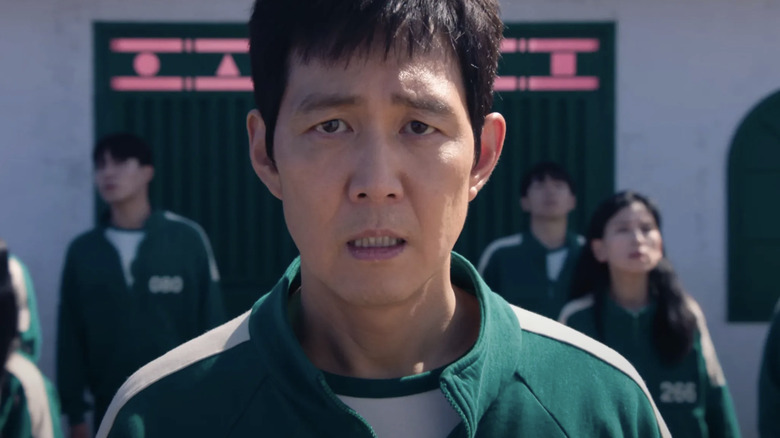Netflix
Warning: substantial spoilers for “Squid Game” season 2 are included in this article.
The premise of “Squid Game” is uncomplicated: 456 financially-strapped individuals participate in a deadly competition, playing nostalgic childhood games. The last player standing wins 45.6 billion won, approximately $32 million. The agreement is clear-cut – emerge victorious or die trying. While a grim and dystopian concept, it’s fairly straightforward. The first season’s elements continue into the second, with a few additions by the show’s creator, Hwang Dong-hyuk, adding an element of surprise similar to President Snow’s tactics in “The Hunger Games: Catching Fire.”
The first season’s winner, Seong Gi-hun (Lee Jung-jae), is consumed by guilt for surviving while 455 others did not. This guilt prompts him to end the deadly games, leading him back into the competition to dismantle it from the inside. But he soon discovers that the rules have changed. After each game, players can vote to divide the winnings and leave, or continue playing, hoping the number of casualties and the prize money will increase.
The dynamics change when players can leave, effectively voting to risk another player’s life. This indirect democratic process deepens the series’ social commentary. The wealthy continually pit the poor against each other, but now the players decide whether to continue the game or not. This leads to the formation of alliances, and players direct their anger at each other instead of focusing on the real enemy.
Your Life is at Stake – Vote Wisely

Netflix
“Squid Game” isn’t the first narrative to focus on individuals willingly or forcibly participating in horrifying games, but the addition of a voting system brings the story even closer to reality than season 1. This aspect especially resonates with Americans, considering the recent presidential election. The players, pushed to the edge, are literally voting for their lives. These individuals are terrified, traumatized, weary, and on the brink of starvation, burdened by debt. Those who want to leave understand that their lives are worth more than any amount of money. But not everyone shares this sentiment.
The motivations vary – some are driven by greed, others feel they’ve come too far to leave without a substantial prize, some have been corrupted by the games, and others are simply terrified. It’s easy to vilify the players voting against their best interests, but painting them all as greedy, bloodthirsty monsters would be a gross oversimplification. The real villains are those who put them in this predicament. Observing the voting process after each game is harrowing. Not only do we witness the disintegration of a miniature society, but we can also empathize with those who vote, putting themselves in harm’s way, clinging to the hope that this vote may bring them closer to a better life. If only it were that simple.
“Squid Game” season 2 is currently available on Netflix.
Credit: www.slashfilm.com


